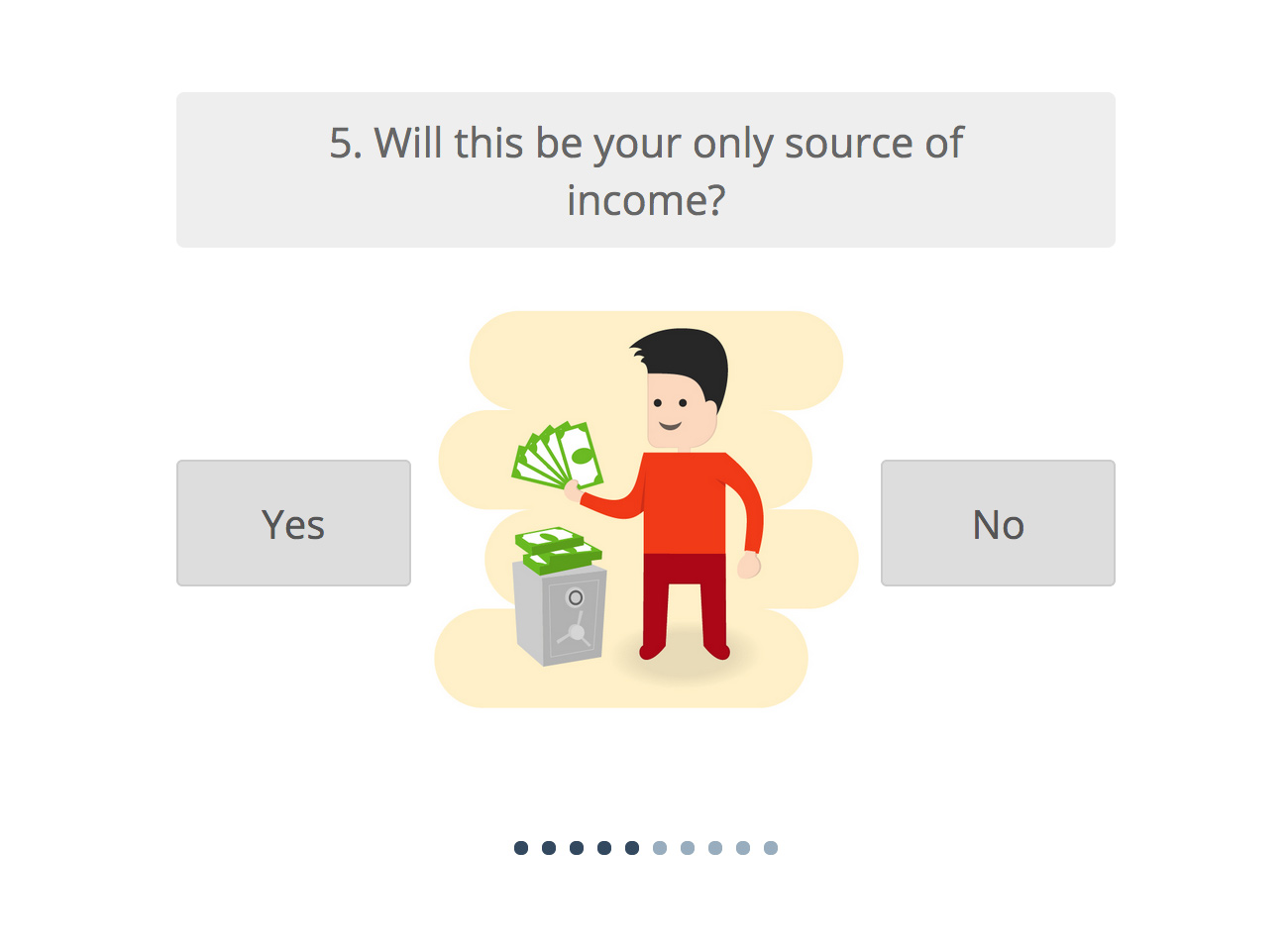
Backlinks are still the major indicator Google uses to determine the authority of a blog. The better your backlinks, the better you’ll rank in search results. But they sure aren’t easy to get.
Building backlinks is a tricky business because many of the “easy” ways go against Google’s terms of service.
What’s more, if you build them in a way that even looks artificial you run the risk of getting a penalty that can be hard to undo.
Today we’re going to take a quick look at the good old backlink – the good and the bad – and talk about a few ways you can start to get more.
Hope it helps!
What is a backlink?
Let’s start with the basics in case any newer bloggers are a little bit unsure.
I’d recommend you go back and read this post on the basics of SEO so that you feel up to speed. But we can quite simply define a backlink as this:
A backlink is when another website links to your blog.
For example, that link above to the article about blogging SEO counts as a backlink for that article. In that case, the anchor text is “the basics of SEO” as those are the words you click to visit the article. ![]()
What do backlinks do?
It’s also important to remember that backlinks have several purposes and lead to quite a few different results, each of them different depending on whether you are the one linking out or being linked to.
Some of the main ones include:
- They send traffic to your site
When you get a backlink from another blog you will get traffic from that blog as people click through to read the article. This is important even without the SEO benefits. - They make your blog seem authoritative
A backlink is a lot like an endorsement from a blog which is good for your branding as you appear more authoritative if you get backlinks from other quality sites. - They provide new resources for readers
When you link out to other blogs it gives your readers new information. Don’t be afraid to link out a lot as it shows that your posts are well researched and valuable sources of new information. - They get your noticed by the owners
When you link to another blog and someone clicks through that click shows up as a site visitor in statistics programs. This is a good way to get other blogs to notice your blog and should form a valuable part of your blogging strategy. - They help you rank better on Google
Of course, Google uses hundreds of factors to determine how well your blog ranks (site age, freshness, location, points of difference, load time, etc.) but backlinks are still a major one. If you have lots of quality links from relevant, naturally earned sources then you will rank better.
For the purposes of this post we’re just going to focus on how to earn backlinks instead of really going in to details about the different types and the effect that they have on your blog. This post should hopefully be a starting point for more research.
How to get more backlinks
Okay, so let’s jump in to the tofu and potatoes of the post and start looking at the different ways you can get more backlinks to your blog.
Remember, you always want to earn your links in a natural way. I really don’t advocate anything that is cheating or goes against Google’s terms of service. We’ll talk more about that at the end of the article.
1. Produce something different
One of the most common pieces of advice you get about SEO is that you have to produce quality content. But, to be honest, that’s not the whole picture.
If you look at the front page of Google these days you’ll notice that all the results are slightly different. For example, you’ll see tweets, long form articles, tools, calculators, news items, etc.

What this means is that it’s a good idea to try and approach your target keywords with content that is slightly different to the rest. If you can make something that stands out from the crowd it is a lot more likely that you’ll linked to because other people will see it as something valuable and exciting.
2. Link out to bloggers
A lot of bloggers seem scared to link to lots of other sites for fear of losing page rank or something like that.
In fact, linking out to other bloggers is actually a really good way to get more backlinks yourself because, as mentioned above, you get on the radar of those blogs.

For example, if you look at sites like Quicksprout you’ll notice that the articles are filled with links. This is partly that Neil wants to give bloggers more resources, and partly because he knows that when he links to people he’s more likely to get shares, links, and promotion. It’s a bit of an unspoken rule of blogging:
It’s an unspoken rule of blogging that if you link to me I’ll promote your post (assuming it’s decent). #blogging
— Ramsay (@BlogTyrant) June 3, 2017
Try to include at least one link per paragraph and make sure it goes to an up-to-date website that is very useful and helpful. Once your post goes live you can tweet to the owner and let them know you’ve included their blog.
3. Explore local options
Many states and local councils have websites or online magazines that regularly feature local businesses as a way to support and encourage them.
Sometimes it’s just a link in a directory so that people can search by topic, but other times it’s possible to find a way to get mentioned by creating some content that helps their website.

For example, the Sydney City Council has a separate website for local environmental initiatives. If your business or blog was doing something to help this issue or had some advice for other businesses it’s quite possible you could submit an article to them.
Even if you have to work a little bit harder by holding a physical workshop one evening, it can be worth it because links from government websites are extremely valuable from an SEO point of view.
It’s worth asking around your local council, suburb, etc. to see if there are any online magazines or websites where you might be able to contribute something in your niche as a way to help the locals and add content to their website.
4. Explore educational options
Another similar option is schools and universities that have separate spaces for students and teachers to write about issues relating to student life or post-grad options. Often they will be open to working on an article in order to provide more resources for students.
This is particularly relevant if you are a graduate of the university. For example, many colleges love to feature past students who have gone on to succeed in their area and would be happy to feature a story.
The most important thing here is to do your research and find the right person and topic that will be interesting. Colleges are extremely strict about what they publish and often editorials have to go through many people before being approved. A regular old guest post pitch won’t work here. We need to be creative.
5. Collaborate to host/develop something with another blogger
If you follow guys like Pat Flynn and Chris Ducker you’ll notice that they often do extraordinarily helpful business events together.

This is a really clever idea because both individuals then go away and promote the event to their own audience which has the dual effect of building interest for the event and also tapping in to the other guy’s readers.
What’s more, this type of event helps internet business people succeed and, as such, they are much more likely to link out to the event or the people that helped them.

You can also develop tools like the quiz me and Slavko from Fitness Updated produced last year (you can try it out at the bottom of this post). This was a fantastic collaboration and we both earned new links from each other in the process.
Try and think about something that is missing in your niche and then make contact with another blogger who might be interested in teaming up with you to either develop it or just promote it. Often if you’ve already done the hard work and are willing to give naming rights to someone else you can get a really big link.
6. Write valuable content off-site (not just guest posts)
A lot of SEO advice is aimed at improving the content and optimization of our own blogs – and rightly so – but we should also spend a bit more time creating content on other sites.
For example, we all know that guest posts can be important in this respect (although the advice has changed somewhat) but there are a lot of other options that can really help to build backlinks.

In the Internet Marketing world there is sites like Inbound.org that have an original articles section where experts write about topics in depth. You can, of course, includes links to your own blog in these but the main advantage is getting in front of other bloggers and site owners who might link to you if they discover you through that platform.
You can also do this kind of thing on LinkedIn and Medium as they really favor long form content and well crafted stuff seems to do extremely well and sometimes even gets picked up by news sites. And that leads us on to the next point.
7. Hire a publicist
A lot of people consider publicists to be a little bit out of date and perhaps not in touch with the new digital age. But nothing could be further from the truth. Unless you’re John Miller.
While quite expensive, a good publicist can get you featured in media outlets that would otherwise be virtually impossible to crack. If, for example, you have a blogging event or launch coming up, you can hire a publicist who can help you craft an angle to an interview or a feature article.
This is a good one to explore because links from news sites are extremely valuable in terms of their impact on SEO, but they also send a lot of traffic and regularly get syndicated to other outlets around the world.
When looking for a publicist start in your local area and ask them specifically if they have contacts in newspapers that also have online versions. A mention in a newspaper will still bring a lot of traffic, but you also want that long-lasting benefit of a backlink.
And before you get started make sure you read this.
8. Help out other sites where the might not know they need it
The last idea I wanted to mention tonight is something that can be a bit hit and miss but, when you get it right, it can work wonders.
It is centered around the idea of contacting other bloggers in your niche and helping them out in some way that they might not have expected. For example, if you can notice some glaring errors with their site you could think about giving them a big solution for free and then later on pitch more improvements in exchange for a post about the process.
Similar to this is the idea of interning or helping out on projects. For example, last week I mentioned my friend Vishal who I met through the comments section on Blog Tyrant. He was always so friendly and eager to learn and, after a while, I paid him to do a few tasks and he ended up getting links from the site.
So perhaps take a look around the blogs in your niche and see if you can come up with something that is useful to them and get involved in a very non-spammy way. It might be putting together a high quality PDF audit, or assisting them with something like managing comments if you can see that they are struggling.
What about buying links?
I couldn’t end this post on how to get more links without talking about the most obvious and nefarious way: buying them.
The sad fact of the matter is that, in a lot of cases, buying links still seems to work for people. I can categorically say that I have never once purchased any single link in my whole career, but I do sometimes think I’m missing out when I see crappy sites competing in my niche who clearly didn’t earn the links they have.
That being said, those sites often don’t last for very long. All it takes is a manual review from Google and you have one of those pesky penalties.
Personally I don’t agree with buying links, but I know a lot of people hit back at that argument by saying that Google unfairly favors a lot of big websites, and they often take content off those sites and put it directly on the search results so that no one clicks through. In other words, they’ve made the playing field harder. And I can sympathize with that.
But I still believe that if you want a long term, sustainable blog then the best way to build links is to do it naturally by earning them with clever content, useful tools, and concerted outreach.
How do you build links?
I’d really like to know if you use any other link building methods that you think might be worth mentioning. This is a constantly evolving and changing space and it would be really cool to see what other bloggers are working on.
Please leave a comment and let us know.
Top photo © BDanomyte
